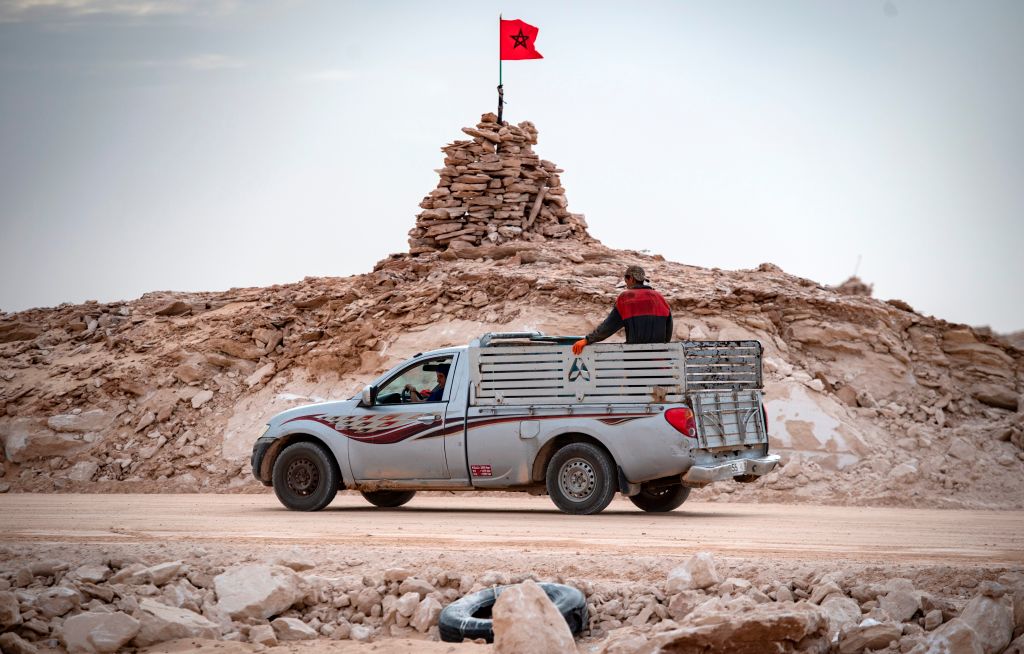Morocco’s rejuvenation of ties with Israel will be felt across the Muslim world

The Kingdom of Morocco has come full circle in its relations with Israel and its stance on the Palestinian struggle for freedom and independence. It has revived its 1990s approach by recognising the Jewish state and normalising relations with it, while stressing its continued support for the Palestinian cause.
The main silver lining for the kingdom this time is that the outgoing US administration has endorsed Morocco’s sovereignty over the long-disputed territory of Western Sahara. Rabat has sought to cut it both ways, but it has ultimately beefed up the increasing number of Arab states giving priority to their self-interests.
Morocco has traditionally followed a middle-of-the-road foreign policy. As a state having inherited a rich civilisation, acted as a linchpin within the Arab world and experienced French colonial rule, with close proximity to Europe and intimate linkages to western Africa, it has valued the politics of dialogue, peacemaking and cooperative foreign relations as critical to its political, economic and security priorities.
In recent times, its rulers, including the current king, Mohammed VI, who succeeded his father Hassan II in July 1999, have projected themselves as promoters of a moderate Islam and as savvy reformers, and conducted a foreign policy that could enable them to cut through the internal and external binaries confronting them. In this context, Rabat has broadly been a multilateralist conciliator in its foreign policy dispositions, barring its dispute with Algeria over Western Sahara, where the Polisario Front independence movement has rejected Morocco’s claim of sovereignty with the backing of Algeria and UN support.
In the Israeli–Palestinian conflict, Morocco has historically stood by the Palestinian and, for that matter, Arab causes, but at the same time has been well disposed towards improved relations with Israel. After Egypt, Morocco was the second Arab country to establish low-level diplomatic relations with Israel, where it opened a liaison office, which was widely viewed as an embassy, in October 1994. This came about as a result of three decades of discreet and clandestine links between the two countries, many of which were initiated by Israel. Within two years of Morocco’s move, Tunisia and Mauritania followed suit.
Although Morocco closed the office six years later, its conciliation with Israel preceded the Arab initiative of 2002 to make conditional peace with Israel. The initiative was proposed by the then Saudi crown prince, Abdullah bin Abdulaziz, and approved by the Arab League (of which Morocco has been a member), to the effect that the league would recognise Israel in return for its withdrawal from the occupied Arab territories, thus enabling the creation of an independent Palestinian state.
In the dying days of his presidency, Donald Trump has claimed credit for brokering Morocco’s renewal of ties with Israel, but the foundations for such a renewal already existed. Trump’s trade-off mediation and the recent recognition of Israel by the United Arab Emirates, Bahrain and Sudan simply made the arena more conducive for Morocco to make its move. Rabat has said that, similar to the previous occasion, its relations with Israel will be low key and limited, and therefore not of the same scale of those of the UAE and Bahrain. Yet, the view from the US and Israel is to the contrary. Rabat has also intimated that renewing ties with Israel will in no way affect its traditional stance in support of the Palestinians’ right to self-determination and a two-state solution.
Whatever Rabat’s announcements, which take into account the need not to provoke any serious popular backlash from within the Arab and Muslim domains where support for the Palestinian cause still runs strong, its move strengthens the positions of other Arab countries that intend to follow suit. Morocco would not have acted without consulting Saudi Arabia, which is an important source of aid and investment. This doesn’t mean that Riyadh can be expected also to join the Abraham Accords in normalising relations with Israel soon. But it does indicate that such a move may not be too far off.
The growing number of Arab states normalising relations with Israel certainly undercuts the chances of the Palestinians negotiating a viable settlement with Israel and enlarges the anti-Iranian Arab–Israeli front. It also confronts many non-Arab Muslim countries that have strongly supported the Palestinian cause, from Pakistan and Turkey to Malaysia and Indonesia, with serious dilemmas. These states are unlikely to jump onto the Arab states’ bandwagon, but they will have to make their way through some diplomatic minefields to ignore the pressure emanating from Arab states’ dealings with Israel.